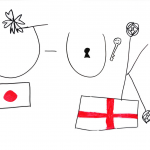osf
Tell us what you found out –
what were people’s experiences, views or ideas for change?
Com’ON Cluj-Napoca ’20 participatory budgeting for youth brought 70 initiatives proposed by informal groups of young people aged 14-35 living, studying or working in Cluj-Napoca, within 4 priorities: learning, health, enabling environment, agency and engagement. 8426 votes had been casted by 4079 users and the first 46 initiatives (organised by 132 youngsters) were awarded and implemented both online and offline, in various spaces in Cluj-Napoca. Their initiatives reached over 15.000 beneficiaries. Voting was allowed starting from the age of 14.
Due to the epidemiologic context, we had to constantly replan and calibrate the process, but that only tested our (and our groups’) resilience and adaptability. We received positive feedback from our initiative groups and from our partners on both the technical side of the process and their new role as organisers.
We are working on reaching and including more “diverse” young people in both consulting on the project and to encourage them to apply with their own initiatives. We are also planning to bring Com’ON closer to their environments: schools, neighbourhoods, popular media among them in an effort to bring the project to their attention and to make it more accessible.
-
osf
Tell us your advice on doing participation activities - what worked well, what you enjoy, what is inclusive?
We believe the key is to actually pay attention to the environment within one’s working in and to the beneficiaries, in all of the project’s phases. Our partners also helped a great deal with providing feedback and proposals for the project and in promoting. This edition of Com’ON Cluj-Napoca had two special categories targeting young people with fewer opportunities and a 14-17 age category. We also had a network of facilitators in order to be able to reach and support any interested youngster. Some of the proposed initiatives were targeted to specific groups and contributed to the overall inclusivity of the project and of the initiatives. Also, fitting the Cluj’s context, most of Com’ON’s content is available in Romanian, Hungarian and English. Com’ON Cluj-Napoca showed us that there is a valid assumption about the fact that young people below the age of 14 are willing to take part in decisions concerning them. Com’ON Cluj-Napoca proved that there is a real opportunity in opening up voting below the age of 18 while tools such as participatory budgeting help young people to prepare for taking part in broader decisions, too. -
osf
What do you try to change?
Overall, we believe that Com’ON helps a lot in achieving a happier and stronger community by increasing the cohesion and inclusion of young people between them and between youngsters and the Cluj community. It also provides more accountability and transparency in decision making and contributes to a more deliberate culture. At the young people’s level, the project cultivates skills related to active citizenship and entrepreneurial attitude and can provide a sense of pride and fulfilment. We are currently planning a new edition of Com’ON Cluj-Napoca focusing especially of the after-pandemic context and how will it affect the project, how to better reach youngsters in their environment and the civic/educational part of Com’ON. We want a relevant Com’ON – where young people feel their ideas matter and are empowered to be an active part of the change they want to see in Cluj-Napoca – so we want them to talk, to help us improve the process by making it more accessible, reliable and worry-free. At the team’s level, we are currently working on a plan to measure Com’ON’s impact over the past four editions, which will also help us to see more clearly what the project did for the community and to calibrate future editions.


